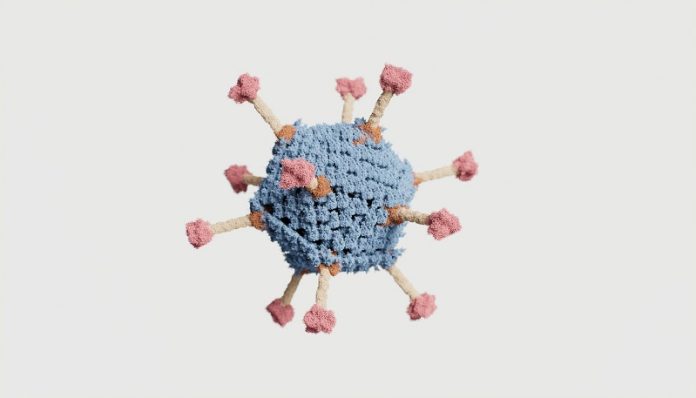
Scientists at the University of Minnesota and the Midwest Antiviral Drug Discovery (AViDD) Center have made a surprising finding about how antibodies behave in COVID-19 infections.
Their research shows that antibodies, which the body creates to fight off viruses, can sometimes have opposite effects.
This means that some antibodies can either help block the virus from entering cells or, in rare cases, actually help the virus infect human cells.
The SARS-CoV-2 virus, which causes COVID-19, uses a special protein on its surface called the spike protein to enter human cells.
The spike protein is also the main target for the body’s antibodies.
In most cases, antibodies stop the virus from infecting cells. However, scientists have now discovered that certain antibodies can sometimes assist the virus in getting into cells.
This research was published in the journal PLOS Pathogens and is the first study to show that an antibody can have this dual role—both helping and blocking the virus.
In particular, this study identified an antibody that helps earlier strains of the virus, known as pre-omicron variants, infect cells, while it prevents the more recent omicron variant from doing the same.
The scientists were able to explain how this antibody works. They found that it helps the pre-omicron virus enter human cells by interacting with its spike protein.
However, when it comes to the omicron variant, the same antibody blocks the virus from infecting cells. This dual behavior was unexpected and challenges our current understanding of how antibodies fight infections.
The research team was led by Dr. Fang Li, co-director of the Midwest AViDD Center and a professor at the University of Minnesota Medical School. Other key members included Dr. Bin Liu from the Hormel Institute, research scientist Dr. Gang Ye, and graduate student Fan Bu from the Department of Pharmacology. Together, they made this important discovery.
Dr. Li compared the fight between viruses and the development of treatments to an “arms race,” saying that the virus evolves, and scientists must constantly develop new ways to fight it. He noted that while this particular antibody was shown to assist the virus in lab-grown cells, there is no evidence that this happens in people.
At the Midwest AViDD Center, the team has been developing special tiny antibodies, called nanobodies, that come from animals like llamas and camels. These nanobodies could be used as treatments against viruses.
They are also useful tools for studying how the SARS-CoV-2 spike protein works, which led to this surprising discovery.
If you care about COVID, please read studies about Vitamin D deficiency linked to severe COVID-19, and how diets could help manage post-COVID syndrome.
For more health information, please see recent studies about new evidence on rare blood clots after COVID-19 vaccination, and results showing zinc could help reduce COVID-19 infection risk.



